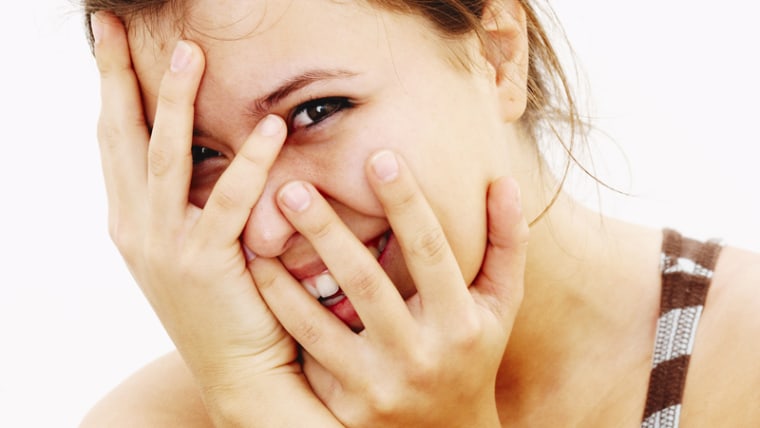Brides and bashful types aren't the only ones who blush. Most of us have felt our cheeks burn up at least occasionally.
But next time a rush of blood and heat give your face and neck a crimson glow, don't feel embarrassed. A new study suggests some unexpected benefits of blushing: It found that people who turn red after making a mistake or social blunder were considered more trustworthy and judged more positively than those who did not.
In the research, published in the April issue of the journal Emotion, 196 college students (ages 17 to 44) played a prisoner's dilemma game online. During the game's first round, a virtual opponent cooperated with the participant's playing strategy and each shared the winnings. But after the second round, the opponent defected and earned a bigger payout than the participant.
After both rounds, participants were shown photographs of their virtual female opponent bearing one of four expressions: neutral, neutral with a blush, embarrassment, and embarrassment plus blush. When students were asked to do a "trust task" at the end of the game, they judged the defector less harshly when she blushed and thought she was less likely to defect again. Participants even gave a blushing, neutral faced opponent more prize money during the trust task and rated her more honest than someone without rosy cheeks.
"After you do something wrong, people like you more when you blush," says Corine Dijk, an assistant professor of psychology at the University of Amsterdam in the Netherlands, and the study's lead author.
Charles Darwin once described a blush as "the most peculiar and most human of all expressions," and it's a reaction we have no control over.
Color that may begin at your neck, spread to your checks and forehead, and extend to your ears, tends to appear following a mistake, when a secret is exposed, or after a compliment. "The common thing in all these situations is that you are extremely self-conscious," suggests Dijk.
Blushing is an important way that humans display their emotions and it has an appeasing effect on people after a social gaffe. It "signals that you care about others opinions," says Dijk, and that's generally a good thing.
Dijk describes more intriguing facts about blushing:
- Self-conscious personalities are most likely to blush, especially socially anxious or shy people.
- A "classic" blush lasts a few seconds and is controlled by the sympathetic nervous system. A "creeping" blush, which cause blotches around the neck, typically lasts longer and may be hormonally driven.
- People of all skin tones blush, but it may be harder to notice in those with darker skin.
- Women reportedly blush more than men, but the one study that measured gender differences did not find strong evidence of this.
- Blushing is unique to humans, although animals with naked skin have flush reactions so they seem to blush.
Is there a blush-inducing moment that sticks out in your mind? Do tell.
Want more weird health news? "Like" The Body Odd on Facebook.
